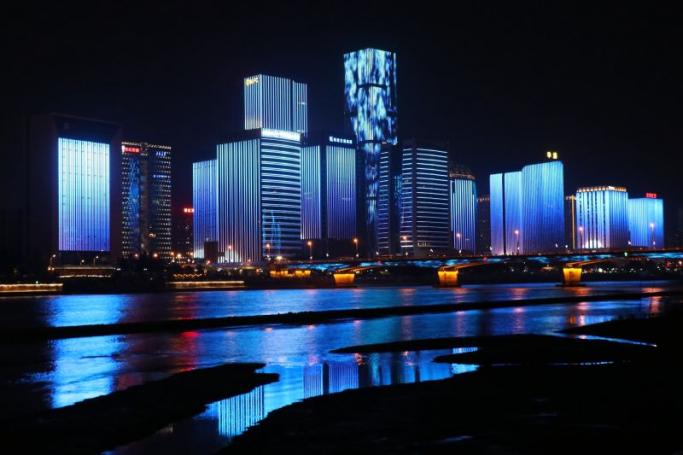AFP
The Asian Infrastructure Investment Bank (AIIB) is under scrutiny after its Canadian communications chief resigned over what he called China's undue influence in the multilateral organisation.
Bob Pickard said the bank is dominated by members of the Chinese Communist Party (CCP) and primarily funds projects of interest to Beijing.
Here are some key facts about the AIIB, and the controversies surrounding it:
- Origins -
Chinese President Xi Jinping first mentioned the concept of a China-led multilateral financial institution in 2013, at an Asia-Pacific Economic Cooperation Summit in Indonesia.
The idea was widely seen as a move to counter Western dominance of lending funds such as the World Bank and the International Monetary Fund.
Xi promoted the bank as a way to help build dams, ports and other vital infrastructure around the region.
"In China we have a folk saying," Xi said at a ceremony in Beijing in 2014 to announce the first 21 nations that had signed up to the concept.
"If you would like to get rich, build roads first, and I believe that is a very vivid description of the importance of infrastructure to economic development."
- Projects -
AIIB operations began in January 2016.
Since then, it has financed 221 projects worth $42 billion, according to its website.
India is by far the largest borrower as of November 2022.
- Membership -
The AIIB began with 57 founding members -- including many Western countries.
Washington was caught off-guard when the United Kingdom and other European allies sought membership, according to the US Congressional Research Service (CRS).
Canada announced its intention to apply for membership in the summer of 2016, in what was widely seen as a coup for Beijing.
The bank now has 106 approved members. By comparison, the IMF and the World Bank have around 190 member countries each.
Sixteen of the G20 members are AIIB members or prospective ones -- only the United States, Japan, Mexico and the European Union are not.
- Shareholders -
China is the main shareholder and commands 27 percent of voting power -- substantially greater than the second-largest shareholder India, which holds only eight percent.
This is the largest gap between the top two shareholders at any existing multilateral development bank, according to the CRS.
Russia is the third largest, followed by Germany, South Korea, Australia, France, Indonesia, the United Kingdom and Turkey.
- Concerns -
Critics led by the United States worried that the AIIB would set much lower standards for projects that would undermine principles of social, environmental and economic sustainability adhered to by other lenders.
There were also concerns that the bank would be used primarily to further China's own economic interests and political influence, which the AIIB has always insisted are misplaced.
"China's wish isn't to create a new instrument of the Chinese state, it is to demonstrate its ability to promote a truly international institution based in China," AIIB's then-vice president Thierry de Longuemar told AFP in 2017.
Fears that the AIIB would act as a direct competitor to the World Bank were somewhat allayed when the two institutions signed off on a framework for cooperation in common areas of interest in 2017.
It has similar agreements with the Asian Development Bank and the European Bank for Reconstruction and Development, as well as cooperating with a range of other international lenders.
The bank has maintained AAA ratings from major rating agencies, and holds Permanent Observer status at the United Nations.
- Leadership -
Since its inception, the bank has been headed by Jin Liqun, a former vice minister at China's finance ministry.
The bank says on its website that "all powers of the Bank are vested in our Board of Governors, which is the highest decision-making body".
The board is made up of financial officials appointed by member countries.
The bank also has an international leadership team and non-resident board of directors, including figures such as former British MP Danny Alexander.
But Pickard called the board of directors "window dressing" and said inside the bank, "there's a parallel system, it's adjacent to the public-decision making structure".
AFP












